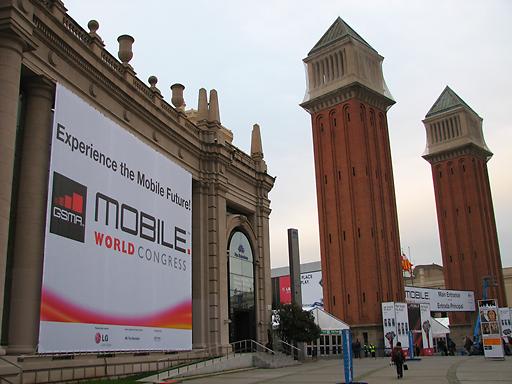
By Julia Pastor, in Madrid | 60,000 professionals and 1,500 companies from more than 200 countries (86 of the participating firms are Spanish) gather since Monday and for a further week in the Mobile World Congress MWC held in Barcelona. It is the seventh meeting edition hosted by the Spanish city, and the first one since Barcelona was awarded the title of Mobile World Capital last July, an honour that allows the Catalan capital to organise the congresses until 2018.
It is expected that this year’s congress generates about €275 million, while the estimates of the economic impact for being MWC capital point at €3.5 billion in revenues during the period 2012-2018.
The meeting is considered the telecom sector summit, the great shop window for manufacturers and software big names’ innovations. Some commentators have labelled the previous six editions as ‘the ones of the multimedia mobiles with internet connection era’, but this year’s congress motto, ‘Redefining Mobile’, seems to shift the focus toward the so called ‘Digital Economy’, that is, to the new businesses bound to telecommunications such as the mobility, which includes much of computering integration processes and applications and now also of commerce.
All the sector’s heavyweights, Telefónica, Google, Nokia, Microsoft, Samsung will be participating at the meeting, except for Apple, which only attends their own events. The Spanish Telefónica appears in the macro event displaying its new structure and its bet for the digital activity, its subsidary Telefónica Digital.
In fact, Telefónica and its partnerships have been involved in some of the many headlines of the congress. Firstly, Telefónica and Mozilla have announced they are developing mobiles HTML 5-based with the aim of creating an operating system for smartphones to be marketed at a reduced prices in regions such as Latinamerica. Also, the Spanish company, this time in combination with Lucent and Samsung, are presenting a new technology to enable the LTE (4G) mobile telecommunications to navigate at up to 100 megabits per second, mixing conventional stations with mini stations. The technology will be built in Madrid and Barcelona areas with the highest companies population, and in other places as the demand is growing.
Finally, Telefónica, Vodafone and Orange have introduced their new joint service called Joyn , which is born to compete directly with the so well- known and extensively used ‘Whatsapp’. The three operators’s platform differs from the original in the fact it circulates in their celular networks instead of being supported by Internet. The added value stands at that, including the same functionalities, users will be able to have video conversations to each other.





Be the first to comment on "Telecoms and Telefónica summit in Barcelona: HTML-5, 100mb LTE and Joyn"